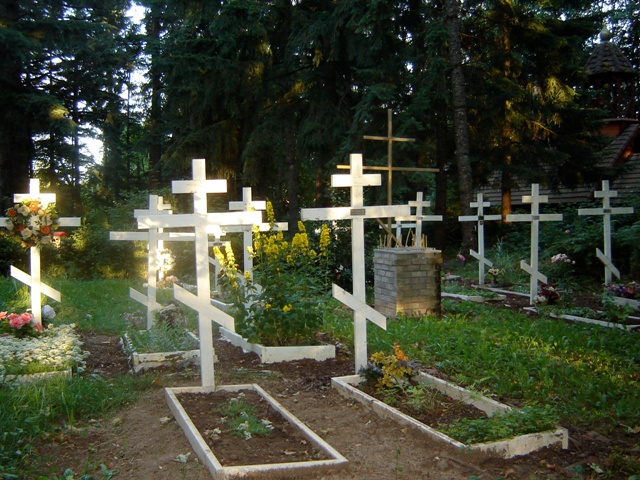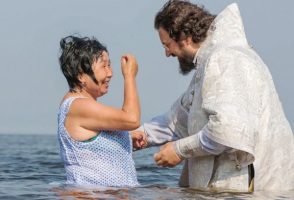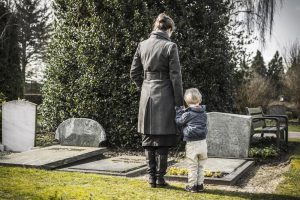“I will say to my soul, Soul, you have ample goods laid up for many years; take your ease, eat, drink, be merry.” But God said to him, “Fool! This night your soul is required of you; and the things you have prepared, whose will they be?” – Luke 12:19-20
 Do we not recognize the reactions of the rich man in this familiar parable? How often have we felt a burst of self-confidence because life seemed to be treating us well! We were successful at work, or were appreciated by someone whose opinion we value, or completed a difficult task, or even were able to help someone in need. Whatever the reason, we were boosted, felt more secure. “Life’s on my side. Why don’t I give myself a good time?”
Do we not recognize the reactions of the rich man in this familiar parable? How often have we felt a burst of self-confidence because life seemed to be treating us well! We were successful at work, or were appreciated by someone whose opinion we value, or completed a difficult task, or even were able to help someone in need. Whatever the reason, we were boosted, felt more secure. “Life’s on my side. Why don’t I give myself a good time?”
But the rich man’s response, and ours if we behave like him, is wholly superficial. By not recognizing as God’s gifts both the land that produced his crops and the crops themselves, the rich man blinds himself to the fact that the whole pattern of his life is in God’s hands.
Moreover, death takes no account of good or bad fortune. And so, for good or ill, we let ourselves be driven to concentrate on our own experience as separate individuals, thereby denying the unifying source of being throughout creation.
This denial is nothing more nor less than sin, testifying to the power of evil within fallen human nature. And with it comes the belief in death as the end of all that we take for granted within our consciousness of life.
If we can no longer lay up treasures for ourselves – that is to say, satisfy those insistent individual demands we make on life – what is there left to us?
Through this parable, Jesus shows that when we are faced by the prospect of this apparently total dissolution of our selves, we are forced to ask: “Is death the final destruction of all that makes us human?”
We may even be shocked into considering how our lives, rather than being locked up within our own closed worlds, could be – in St. Luke’s words – “rich towards God.” At which point we have to say at once that we are standing here in the Church precisely in the desire to witness to our faith that Christ himself is the answer to all our questions.
For God’s response to the power of evil and the presence of death on earth brought about by man’s decision to lock himself away from the Creator’s universal love is to bring that very love to a climax. Having created us in his image and likeness in the first place – itself an act of infinite love – he now sends his only-begotten Son to become man and to make reparation in his own self for our sins in the suffering and death on the cross. Not only that, but having expressed through his death his total love for us, he rises on the third day and appears to his disciples, discussing with them, eating with them, and convincing them totally of his presence with them.
If, before the time of our own deaths, we wish to count ourselves among those whose faith is in Jesus Christ, and whose hope is in his resurrection, how are we to react to this reversal of what we thought of as death?
St. Jerome speaks of the effort that we must make to “know the hope of our calling.”
“This effort,” he writes, “comes in response to that renewing gift which God Himself gives in the glorious Resurrection of his own Son. This gift he gives not once but continually…. Every day Christ rises from the dead. Every day he is raised in the penitent.”
It is in this last sentence that we begin to see the true way to approach death. Repentance is where we must begin. We must repent of all we have done to close ourselves to the love of God and thereby opened ourselves to crucify Christ. We must turn our hearts at all times to the prayers of penitence; we must die to ourselves daily; and we must learn to live, to flesh out, Christ’s words, “he who loses his life for my sake shall find it.”
St. John Climacus calls the thought of death “the most necessary of all works… The remembrance of death, like all other blessings, is a gift of God.” Finally he affirms, “Just as the Fathers lay down that perfect love knows no sin, so for my part I declare that a perfect sense of death is free from fear.”
Let us, in true repentance, in freedom from fear and in love for God, offer our death to God. Let us recognize that death is, for each of us, living or dead, a second Baptism, a cleansing of our souls in readiness for that general Resurrection of which we are meant to be a part. The Saints have led the way: “Not I live but Christ lives in me.”
God cleanse me, a sinner, and have mercy on me. Amen.
















